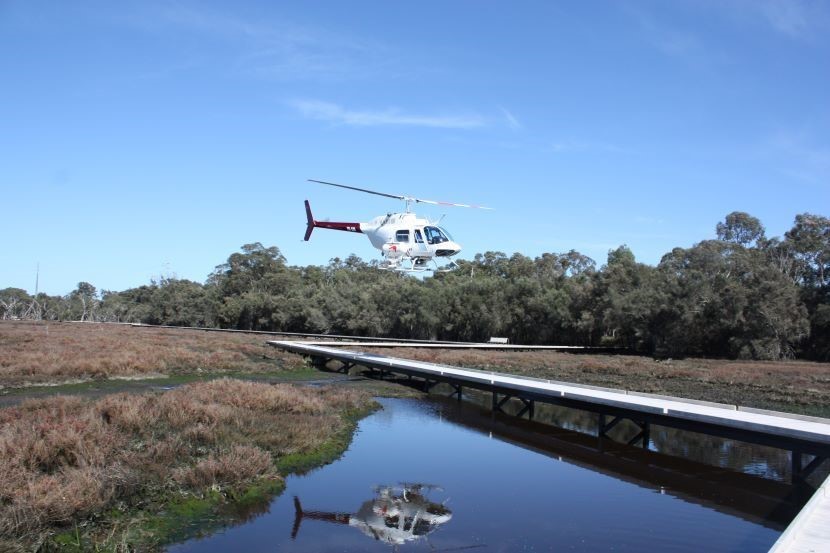
Effective and environmentally sustainable mosquito management is an important community service that reduces the public health risk from mosquitoes as well as minimising their impact on the lifestyle we all enjoy here in our beautiful City.
Environmental conditions, breeding cycles and mosquito-borne disease risks are complex and continually changing so we know it is important to keep our community informed on mosquito management activities and how you can protect yourself and your family from mosquitoes and mosquito borne disease.
Season 2023/24 Update
Since our last update in September, environmental conditions and tidal flooding events have maintained mosquito breeding cycles and the need for aerial larvicide treatments to prevent influxes in mosquito populations.
To date the aerial larvicide program has completed ten (10) treatments since July 2023 and covered an area of 2,303 hectares across the Peel region.
Details of the most recent aerial treatments, completed since September 2023 are as follows:
- 21, 22 & 23 September 2023 422.8 hectares
- 6 October 2023 278.4 hectares
- 28 November & 1 December 2023 310.6 hectares
- 19 December 2023 217.0 hectares
- 27 & 28 December 2023 210.4 hectares
- 17 & 18 January 2024 206.0 hectares
Mosquito-Borne Disease
The WA Department of Health has reported higher numbers of Ross River virus infections this year when compared to the same time last year in the Peel region and the greater South West.
This is a clear warning that the virus is circulating within local mosquito populations, so it is important that the community remains vigilant. The only way to protect yourself from Ross River virus is to take extra precautions to avoid being bitten by mosquitoes whenever you are heading outdoors.
These precautions include:
- Avoid going outside around dawn and dusk when mosquitoes are most active.
- Cover up by wearing long, loose-fitting, and light-coloured clothing when outdoors.
- Use insect repellent containing DEET, picaridin or Oil of Lemon Eucalyptus.
- Use mosquito nets or mosquito-proof tents when camping or sleeping outdoors.
The WA Department of Health released a media statement in December reminding the public about protecting themselves from mosquitoes and other health risks that present at this time of year when outdoor activities and regional travel are at their highest. More information can be found here Twelve healthy tips for a safe summer.
Did you know...
Adult mosquitoes are sometimes confused with non-biting midges and crane flies.
Non-biting midge are usually smaller in size, have shorter wings and form large mating swarms. Meanwhile, crane flies are much larger in size than an average mosquito.
Neither of these species have a proboscis which is a distinguishing feature of a mosquito.
Environmental Conditions
The Australian Bureau of Meteorology's climate outlook and long-range forecast for February to April 2024 is suggesting below median rainfall and above median maximum and minimum temperatures for our region, along with the weakening of the El Niño event in the coming months.
Whilst it is difficult to predict exactly how these conditions may impact mosquito breeding cycles locally, in the past, these conditions have been typically less favourable for intense mosquito breeding activity.
Looking for more Information?
Here is a short video on how the City manages mosquitoes and form more information please visit:


